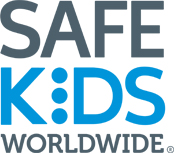Every 8 Minutes a Child goes to an Emergency Room for Medicine Poisoning
Safe Kids Worldwide Issues Alert: 3 out of 4 ER Visits for Medicine Poisoning are due to Kids Getting into Parents’ or Grandparents’ Medicine
Washington, D.C. – Today Safe Kids Worldwide released a new research report identifying new insights into why kids are getting into medicine nearly 500,000 times per year. Every minute of every day, a poison control center receives a call about a potential medicine poisoning for a child age five and under. And 64,000 times each year, or every eight minutes, a young child goes to the emergency room for medicine poisoning. In three out of four (77 percent) of those visits, a child got into medicine belonging to a parent or grandparent. A surprising 38 percent of the time, a child got into a grandparent’s medicine.
In its report entitled Keeping Families Safe Around Medicine, Safe Kids examined data from the U.S. Consumer Product Safety Commission and information from Poison Control Centers. In addition, to understand grandparents’ behavior when it comes to medicine safety, Safe Kids conducted research among more than 1,000 grandparents who regularly supervise young grandchildren.
The makeup of a “typical” household has changed significantly in recent years. Since 2005, there has been a 23 percent increase in the number of grandparents living with their grandchildren. And 13 percent of grandparents provide care for a grandchild on a regular basis. While older adults only make up 13 percent of the population, they account for 34 percent of all prescription medicine use. In the Safe Kids survey, 74 percent of grandparents who regularly care for a grandchild reported taking a prescription medicine every day. This new dynamic of children being around more adult medicine in the home makes medicine safety a more important topic than ever for families.
The research revealed that, like parents, grandparents know to keep medicine up and away from children. But there are clearly exceptions being made that are driving nearly half a million calls to Poison Control Centers each year. About 28 percent of grandparents who take care of their grandkids every day keep their medicines in easy-open containers or bottles without a child-resistant cap. Among grandparents who use these, 42 percent keep prescription medicine on a bathroom or kitchen sink, counter, table or shelf – locations that are easily accessible to young children. About 12 percent of grandparents who take care of their grandkids every day keep prescription medicine on a nightstand or dresser where kids can easily get into it. And 13 percent keep medicine on a counter or table between doses when giving medicine to a child.
“Every parent and grandparent knows to keep medicine up and away from kids,” said Kate Carr, President and CEO of Safe Kids Worldwide. “But it’s the exceptions, that one time when you leave your medicine in reach of a child, that lead to these alarming situations. And it happens every minute of every day, resulting in nearly half a million calls to Poison Control Centers every year.”
When asked what they would do in an emergency, more than half the respondents said they wouldn’t think to call the Poison Help Number, 1-800-222-1222, first. But it’s a smart call to make: In seven out of ten calls to the Poison Help Number, the child can be treated at home under the guidance of the registered nurses and toxicologists who answer the 24-hour hotline, with no trip to the emergency department and at no expense to the family.
Safe Kids Worldwide offers these tips for families:
Medicine Safety Tips
- Keep all medicine up and away when young children are around, even medicine you take every day.
- Be alert to potential hazards of medicine stored in other locations, like pills in purses, vitamins on counters, and medicine on nightstands.
- Even if you are tempted to keep it handy in between doses, put medicine out of reach after every use.
- Choose child-resistant caps for medicine bottles, if you’re able to. If pill boxes or non-child resistant caps are the only option, it’s even more important to store these containers up high and out of sight when caring for kids.
- Take the time to read and follow the label before taking or giving medicine.
- Program the nationwide Poison Help Number (1-800-222-1222) into your phones.
- Visit safekids.org for more tips on safe storage, safe dosing and safe disposal of medicine.
National Poison Prevention Week is March 16 – 22, 2014.
Download the report
Download the video
Download the complete list of safety tips

About Safe Kids Worldwide
Safe Kids Worldwide is a global non-profit organization dedicated to preventing childhood injury, the number one killer of children in the United States. Throughout the world, almost one million children die of an injury each year, and every one of these tragedies is preventable. Safe Kids works with an extensive network of more than 600 coalitions in the U.S. and in 23 countries to reduce traffic injuries, drownings, falls, burns, poisonings and more. Since 1988, Safe Kids has helped reduce the U.S. childhood death rate from unintentional injury by 55 percent. Working together, we can do much more for kids everywhere. Join our effort at safekids.org.
Media Contact
Jen Pollakusky
Media Manager
[email protected]
202-662-4476
